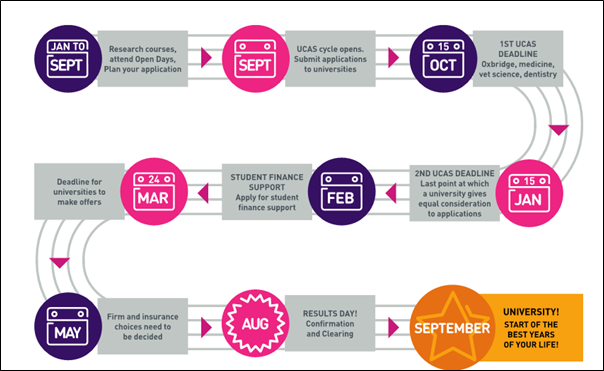
Five Steps to Admissions Reform
UCAS supports nearly 1.5 million students from 200 countries around the world to apply to higher education in the UK.
Over the past three years, UCAS has been working to develop and deliver new improvements to provide a more flexible system. After consulting with 1,200 domestic and international students, over 170 teachers and advisers, and over 100 universities and colleges, alongside engaging with government, UCAS, the UK’s university admissions service, has announced a series of reforms aimed at enhancing the undergraduate admissions process.
These changes are designed to provide greater personalization for applicants, introduce structured formats for application components, and improve transparency in entry requirements. The reforms are set to be implemented for students applying for the 2026 entry cycle.
Applying to the UK? An Introduction UCAS | Ivy Central
Why were the changes made?
The reason for these reforms is underway because ” Students tell us time and time again that they want the space to advocate for themselves, in their own words, to demonstrate achievements beyond their grades.” The survey conducted in the 2022 cycle applicants found that most students are in favour of personal statements. However, 83% of students surveyed reported that the process of writing a personal statement is stressful, with 79% agreeing that the statement is difficult to complete without support.
What are the reforms?
-
Personalized Application Experience
UCAS is introducing greater personalization in the application process, allowing students to better showcase their individual strengths and aspirations. -
Structured Personal Statements
The traditional free-form personal statement will be replaced with structured questions. This change aims to provide clearer guidance for applicants and ensure consistency in the information provided to universities. -
Enhanced Grade Profile Transparency
Applicants will have improved visibility into the range of grade profiles accepted by universities, helping them make more informed choices. -
Support for Widening Access and Participation
New initiatives will be launched to support broader access to higher education, particularly for underrepresented groups. -
Improved Academic References
The structure of academic references will be refined to provide more relevant and concise information about applicants’ academic abilities.
Structured Personal Statements
The traditional personal statement will be replaced with structured questions. Applicants will respond to prompts such as. Why do you want to study this course or subject? How have your qualifications and studies helped you to prepare for this course or subject? What else have you done to prepare outside of education, and why are these experiences helpful?
The new personal statement for 2026 entry
For students applying to university for 2026 entry, the personal statement format will be changing from one longer piece of text to three separate sections. The new personal statement for 2026 entry | Undergraduate | UCAS
The new personal statement questions
-
Question 1: Why do you want to study this course or subject?
-
Question 2: How have your qualifications and studies helped you to prepare for this course or subject?
-
Question 3: What else have you done to prepare outside of education, and why are these experiences useful?
How will these changes help?
Enhanced Clarity
These questions, UCAS believes that simplifying the personal statement will ensure and provide a supportive framework for students, helping them navigate their responses by removing the guesswork. Scaffolding questions offer students a roadmap, breaking them down into manageable parts, ensuring that each aspect of their experiences and goals is thoughtfully explored and articulated.
Enhanced Visibility of Grade Profiles
UCAS will provide data on the actual A-level grades accepted by universities over the past five years. This initiative seeks to increase transparency and assist students, particularly those from disadvantaged backgrounds, in making informed decisions.
Widening access
To support broader access to higher education, UCAS plans to waive application fees for students eligible for free school meals. This effort is intended to encourage applications from underrepresented groups.
These reforms reflect UCAS’s commitment to continually improving the admissions process, ensuring it remains fair, transparent, and supportive of all applicants.
